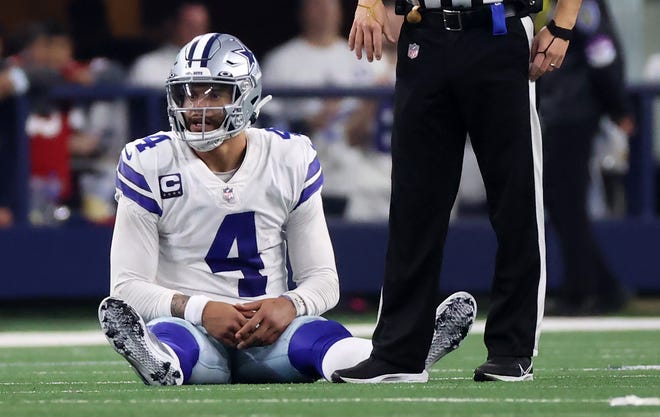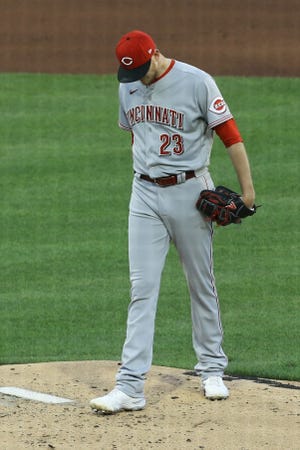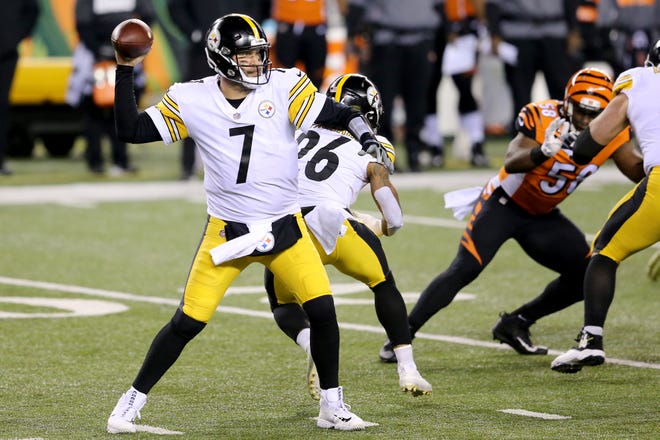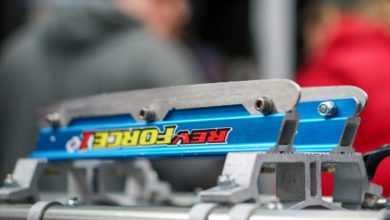
ARLINGTON, Texas — Dak Prescott felt the collision.
He had just scurried 17 yards upfield, advancing his Dallas Cowboys from San Francisco’s 41-yard line to the 24-yard line, eager to position his squad most favorably for one last chance. He saw four seconds on the clock, his team trailing 23-17. He rushed back to center Tyler Biadasz in anticipation of spiking the ball to stop the clock for one final play.
The clock began ticking down to three seconds then two. But a game umpire needed to spot the ball before play could commence. So umpire Raymond George rushed from behind Prescott, running into the quarterback en route to making contact with the ball. Biadasz snapped the ball after George had cleared it, and Prescott swatted it to the ground. It was too late.
The clock had hit zero.
No challenges, flags or reviews arrived in a game that had featured a healthy dose of each.
“That’s the end of the game,” an umpire said.
On the CBS broadcast, color analyst Tony Romo explained: “It’s going to be over, because the umpire has to touch the ball. Of course, it’s ridiculous that the game had to end like this.
“I’m livid if I’m a Cowboys fan or if I’m a Niner fan.”
OPINION:Dismal showing by Mike McCarthy, Dallas Cowboys shouldn't be a surprise
LISTEN:Cowboys' radio call of final play vs. 49ers and its aftermath is too good
4th & MONDAY:Our NFL newsletter always brings the blitz
The Cowboys were.
“I was as shocked as anybody on offense that we didn’t get to that last play opportunity,” McCarthy said. “The communication I was given on the sideline was that they were reviewing it. They were going to put time back on the clock. The next thing I know, they’re running off the field.
“It was such an abrupt finish.”
Coaches and players didn’t publicly question the play call that bled the majority of the final 14 seconds. Could they have attempted a touchdown pass from the 41-yard line? Sure. But the Cowboys wanted to get inside the 20 or at least the 30, cycling through what they call a “church clock” scenario. This was a game situation they practiced nearly every Saturday. Prescott knew the designated next two play options from that weekly segment, the plan after the spike either a designed route to the end zone or jump ball aiming to capitalize on cadence and determine which matchup lent the best touchdown probability.
So Prescott rushed for 17 yards.
“You’re not supposed to go past 10, 12 yards,” Romo, his predecessor as Cowboys quarterback, said on the game broadcast. “Once you go past that, the clock gets away from you.”
Referee Alex Kemp said the umpire “spotted the ball properly.”
“He collided with the players as he was setting the ball because he was moving it to the proper spot,” Kemp said in a pool report. “We’re trailing the play, keeping proper distance so that we can identify fouls, if there are any. Once the play is over, the umpire immediately goes to spot the ball.
“And that’s what he did.”
Prescott didn’t hear the officials at first and thought he had spiked the ball in time. He said he was “gathering” himself from the bang-bang series in which he rushed upfield, was tackled by 49ers linebacker Azeez Al-Shaair and then was jolted from behind by George.
“I knew he was going to come in and touch the ball, you could say he needs to be closer to the ball but in hindsight, just tough,” Prescott said after the 23-17 loss. “Tough to accept.”
Earlier in the fourth quarter, the Cowboys had seemed to catch a series of lucky breaks. They had trailed for the entirety of their home playoff game, but finally pulled within a possession halfway through the fourth quarter.
They had the ball and a chance – “all I can ask for,” Prescott said – with 2:42 to play after Dallas’ defense had forced a punt. But after crossing the 50-yard line, they flopped, one of the Cowboys’ 14 penalties of the day setting up a fourth-and-11 attempt they failed to complete with 1:49 to play.

Dallas’ defense then held again, a 10-yard run by Deebo Samuel ruled just short after a lengthy replay and remeasure series. The Niners faced fourth and inches. Then they were called for a false start.
The Cowboys were gifted another lifeline.
The cacophony of clock management and the officiating-player collision extinguished the spark.
Cowboys owner Jerry Jones declined to blame officiating.
“The team shouldn’t have been in a position for that last play to have been something controversial,” Jones said. “So I’m not going to make it something bigger than it is.”
Prescott, meanwhile, did not hide his frustration toward the officiating crew. When told fans were throwing debris at the officials, Prescott said “credit to them.”
When asked to confirm that he was supporting fans throwing things to send a message to officials, Prescott did not back down.
“If the fans felt the same way as us and that’s what they were doing it for, yeah, I’m guessing that’s why the refs took off and got out of there so fast,” Prescott said. “Yeah, I think everybody is upset with the way that this thing played out.
“I’m sure a fan would feel the same way that we do.”
Follow USA TODAY Sports’ Jori Epstein on Twitter @JoriEpstein.







